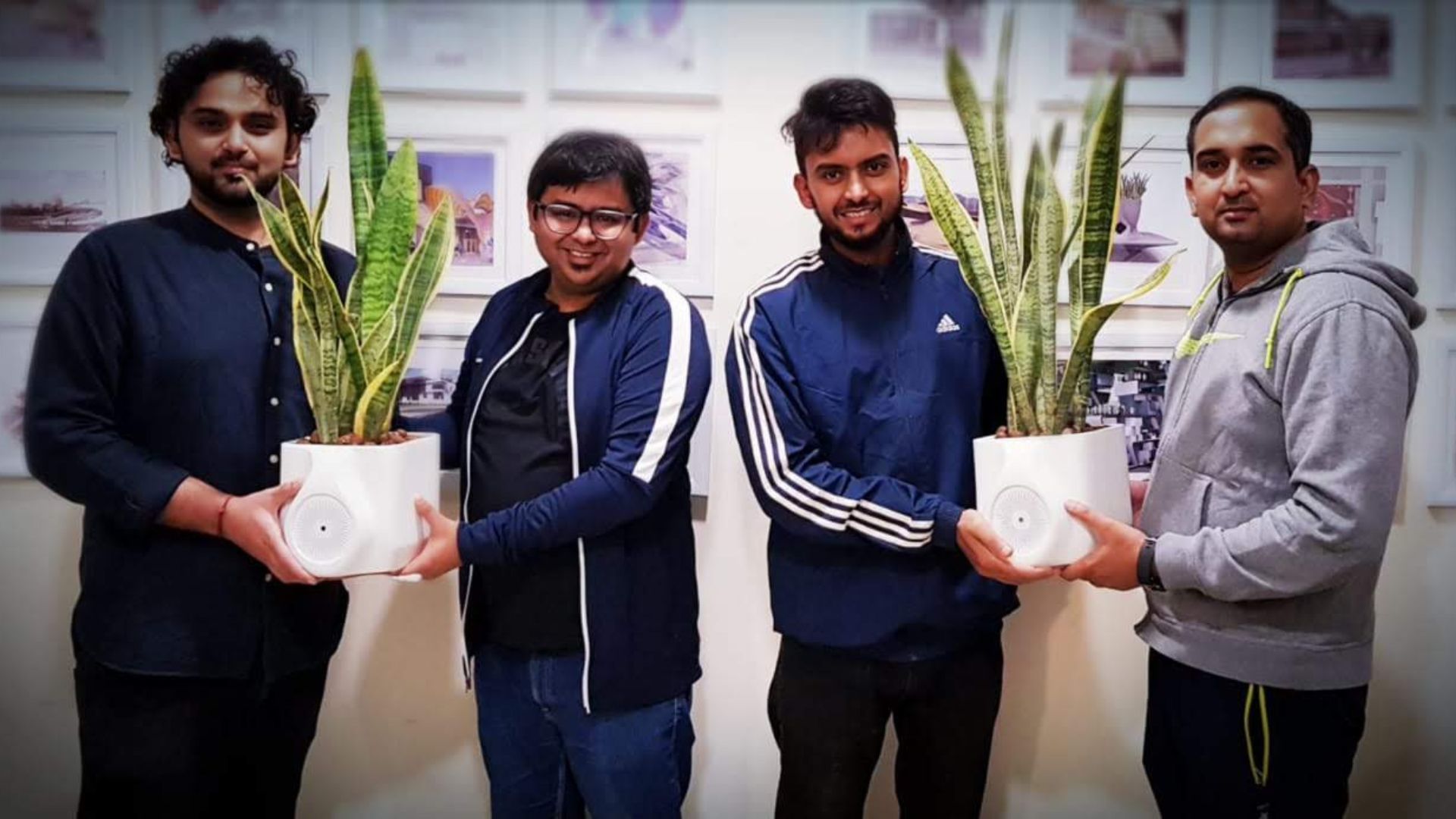Nexus alumnus and entrepreneur Sanjay Maurya helps break down how we can contribute to cleaner air.
July 2023

Sanjay Maurya (second from right), with his team at UBreathe. (Photograph courtesy Sanjay Maurya)
Air pollution is one of the biggest threats to public health in India. A study published in The Lancet Planetary Health estimates that 1.67 million deaths were attributable to air pollution in India in 2019. The majority of these deaths were from ambient particulate matter pollution and household air pollution.
The combined effects of ambient air pollution and household air pollution are associated with 6.7 million premature deaths annually, according to World Health Organization (WHO) data published in 2022.
The health impact
The impact of poor air quality on human health cannot be underestimated. Prolonged exposure to polluted air poses serious risks to both physical and mental well-being. Particulate matter in polluted air can penetrate deep into the lungs, leading to respiratory problems, decreased lung function and compromised immunity.
Toxic pollutants like sulfur dioxide, nitrogen oxides and volatile organic compounds present in the air have detrimental effects on cardiovascular health. Studies have linked long-term exposure to air pollution to an increased risk of asthma, lung cancer, heart disease, strokes and other respiratory ailments. Children, the elderly and individuals with pre-existing health conditions are particularly susceptible to these health impacts.
Here’s what you can do
People can take several measures to combat air pollution and promote healthier living environments. First, opt for sustainable transport options like carpools, public transport or cycles. This can significantly reduce vehicular emissions. When buying a vehicle, choose electric or hybrid variants, and maintain them regularly to minimize emissions.
Promoting sustainable practices at home is another crucial step. Opt for energy-efficient appliances, use LED lighting, and switch to renewable energy sources whenever possible. Insulate homes well to reduce the need for excessive heating or cooling, to conserve energy.
Indoor pollution should also be minimized. Avoid use of pesticides and cleaning agents that release pollutants. Keep indoor spaces well-ventilated and consider using air purifiers to further filter out contaminants and enhance air quality.
Responsible waste management is an essential aspect of reducing air pollution. Dispose of waste responsibly and segregate recyclable materials. Avoiding open waste burning and composting are additional steps to consider.
Support green initiatives, encourage the creation of green spaces and urban gardening initiatives. Trees act as natural air purifiers and absorb pollutants, while green spaces provide breathing space in urban environments.
Advocating for change is crucial for long-term improvements. By raising awareness about the importance of clean air and its impact on public health, individuals can inspire others to act. Engaging with local communities, participating in citizen-led initiatives, and putting pressure on policymakers to prioritize air quality improvements are effective ways to drive change and ensure a healthier future for all.
Learning from nature
UBreathe’s Breathing Roots technology harnesses the natural air purification method of plants. The air purifier made with this technology has a unique design that boosts the phytoremediation process of plants by approximately 500 times with the help of a centrifugal fan. Phytoremediation is a process that uses plants to remedy polluted soil, water and air. The presence of a fan increases the volume of air at the soil-root zone, enabling the root microbiomes to interact with more air and purifying it.
The existing mechanical filters in the market are quick and crude, take long to degrade and have a high carbon footprint. UBreathe’s plant-based natural purifier covers the whole spectrum of air quality while leaving no carbon footprint behind.
Sanjay Maurya is a Nexus alumnus and co-founder of UBreathe.
Click here to sign up for the free SPAN newsletter: https://bit.ly/SubscribeSPAN
COMMENTS